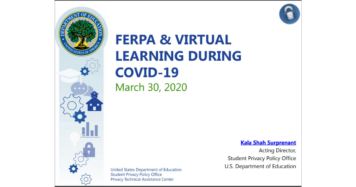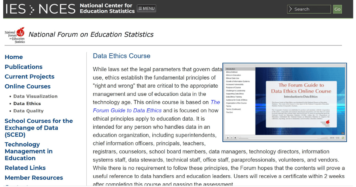Despite 49 states introducing more than 400 bills on student data privacy since 2014, states have yet to address privacy protections for school surveillance or its inequitable effects. A new NASBE report examines this important, emerging issue, identifying the benefits and potential problems posed by school surveillance. In “School Surveillance: The Consequences for Equity and Privacy,” J. William Tucker, NASBE project manager for education data and technology, and Amelia Vance, NASBE director of education data and technology, say the desire to keep students safe is among the top reasons schools use surveillance technologies. But they warn that surveillance can be abused and cause unintended consequences. The report points to recent studies that find a correlation between high levels of school security and a higher percentage of minorities being suspended. On November 16, 2016, from 3:00 to 4:00 p.m. (EDT), Tucker and Vance spoke on a NASBE webinar on their new report and six principles to guide state policy makers toward effective, balanced policies.




